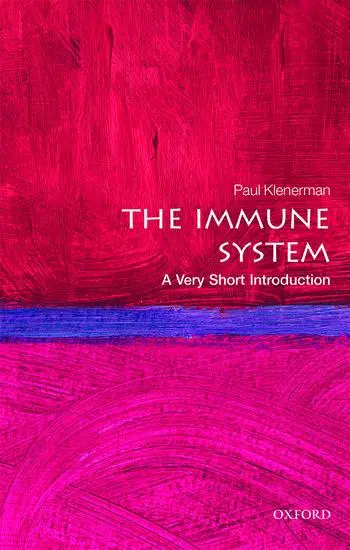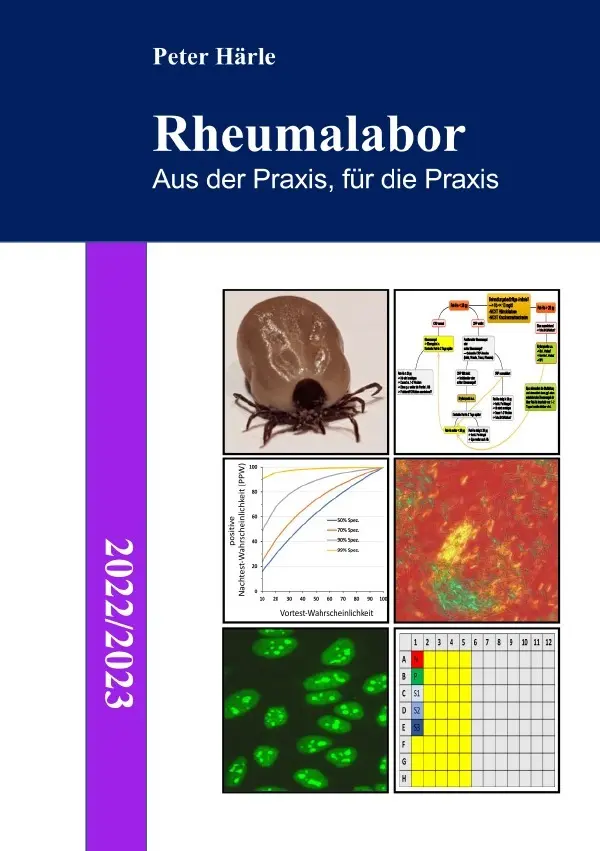Dekorationsartikel gehören nicht zum Leistungsumfang.
Sprache:
Englisch
15,95 €
Versandkostenfrei per Post / DHL
Lieferzeit 1-2 Wochen
Kategorien:
Beschreibung
The immune system is central to human health and the focus of much medical research. Growing understanding of the immune system, and especially the creation of immune memory (long lasting protection), which can be harnessed in the design of vaccines, have been major breakthroughs in medicine.
In this Very Short Introduction, Paul Klenerman describes the immune system, and how it works in health and disease. In particular he focuses on the human immune system, considering how it evolved, the basic rules that govern its behaviour, and the major health threats where it is important. The immune system comprises a series of organs, cells and chemical messengers which work together as a team to provide defence against infection. Klenerman discusses these components, the critical signals that trigger them and how they exert their protective effects, including so-called "innate" immune responses, which react very fast to infection, and "adaptive" immune responses, which have huge diversity and a capacity to recognise and defend against a massive array of micro-organisms. Klenerman also considers what happens when our immune systems fail to be activated effectively, leading to serious infections, problems with inherited diseases, and also HIV/AIDS. At the opposite extreme, as Klenerman shows, an over-exaggerated immune response leads to inflammatory diseases such as Multiple Sclerosis and Rheumatoid Arthritis, as well as allergy and asthma. Finally he looks at the "Immune system v2.o" -- how immune therapies and vaccines can be advanced to protect us against the major diseases of the 21st century.
ABOUT THE SERIES: The Very Short Introductions series from Oxford University Press contains hundreds of titles in almost every subject area. These pocket-sized books are the perfect way to get ahead in a new subject quickly. Our expert authors combine facts, analysis, perspective, new ideas, and enthusiasm to make interesting and challenging topics highly readable.
In this Very Short Introduction, Paul Klenerman describes the immune system, and how it works in health and disease. In particular he focuses on the human immune system, considering how it evolved, the basic rules that govern its behaviour, and the major health threats where it is important. The immune system comprises a series of organs, cells and chemical messengers which work together as a team to provide defence against infection. Klenerman discusses these components, the critical signals that trigger them and how they exert their protective effects, including so-called "innate" immune responses, which react very fast to infection, and "adaptive" immune responses, which have huge diversity and a capacity to recognise and defend against a massive array of micro-organisms. Klenerman also considers what happens when our immune systems fail to be activated effectively, leading to serious infections, problems with inherited diseases, and also HIV/AIDS. At the opposite extreme, as Klenerman shows, an over-exaggerated immune response leads to inflammatory diseases such as Multiple Sclerosis and Rheumatoid Arthritis, as well as allergy and asthma. Finally he looks at the "Immune system v2.o" -- how immune therapies and vaccines can be advanced to protect us against the major diseases of the 21st century.
ABOUT THE SERIES: The Very Short Introductions series from Oxford University Press contains hundreds of titles in almost every subject area. These pocket-sized books are the perfect way to get ahead in a new subject quickly. Our expert authors combine facts, analysis, perspective, new ideas, and enthusiasm to make interesting and challenging topics highly readable.
The immune system is central to human health and the focus of much medical research. Growing understanding of the immune system, and especially the creation of immune memory (long lasting protection), which can be harnessed in the design of vaccines, have been major breakthroughs in medicine.
In this Very Short Introduction, Paul Klenerman describes the immune system, and how it works in health and disease. In particular he focuses on the human immune system, considering how it evolved, the basic rules that govern its behaviour, and the major health threats where it is important. The immune system comprises a series of organs, cells and chemical messengers which work together as a team to provide defence against infection. Klenerman discusses these components, the critical signals that trigger them and how they exert their protective effects, including so-called "innate" immune responses, which react very fast to infection, and "adaptive" immune responses, which have huge diversity and a capacity to recognise and defend against a massive array of micro-organisms. Klenerman also considers what happens when our immune systems fail to be activated effectively, leading to serious infections, problems with inherited diseases, and also HIV/AIDS. At the opposite extreme, as Klenerman shows, an over-exaggerated immune response leads to inflammatory diseases such as Multiple Sclerosis and Rheumatoid Arthritis, as well as allergy and asthma. Finally he looks at the "Immune system v2.o" -- how immune therapies and vaccines can be advanced to protect us against the major diseases of the 21st century.
ABOUT THE SERIES: The Very Short Introductions series from Oxford University Press contains hundreds of titles in almost every subject area. These pocket-sized books are the perfect way to get ahead in a new subject quickly. Our expert authors combine facts, analysis, perspective, new ideas, and enthusiasm to make interesting and challenging topics highly readable.
In this Very Short Introduction, Paul Klenerman describes the immune system, and how it works in health and disease. In particular he focuses on the human immune system, considering how it evolved, the basic rules that govern its behaviour, and the major health threats where it is important. The immune system comprises a series of organs, cells and chemical messengers which work together as a team to provide defence against infection. Klenerman discusses these components, the critical signals that trigger them and how they exert their protective effects, including so-called "innate" immune responses, which react very fast to infection, and "adaptive" immune responses, which have huge diversity and a capacity to recognise and defend against a massive array of micro-organisms. Klenerman also considers what happens when our immune systems fail to be activated effectively, leading to serious infections, problems with inherited diseases, and also HIV/AIDS. At the opposite extreme, as Klenerman shows, an over-exaggerated immune response leads to inflammatory diseases such as Multiple Sclerosis and Rheumatoid Arthritis, as well as allergy and asthma. Finally he looks at the "Immune system v2.o" -- how immune therapies and vaccines can be advanced to protect us against the major diseases of the 21st century.
ABOUT THE SERIES: The Very Short Introductions series from Oxford University Press contains hundreds of titles in almost every subject area. These pocket-sized books are the perfect way to get ahead in a new subject quickly. Our expert authors combine facts, analysis, perspective, new ideas, and enthusiasm to make interesting and challenging topics highly readable.
Über den Autor
Paul Klenerman is Wellcome Trust Senior Clinical Research Fellow and Professor of Immunology at the University of Oxford. He is also Immune Theme Lead at the Oxford Biomedical Research Centre. He authored the chapter on Adaptive Immunity, and co-authored that on the Hepatitis C Virus in the Oxford Textbook of Medicine.
Inhaltsverzeichnis
- 1: What is the immune system?
- 2: Sensing danger: innate immune responses
- 3: Discovering self and non-self
- 4: Immunologic memory and vaccines
- 5: Too little immunity
- 6: Too much immunity
- 7: Harnessing the immune system
- Further Reading
- Index
Details
| Erscheinungsjahr: | 2018 |
|---|---|
| Fachbereich: | Allgemeines |
| Genre: | Biologie, Importe |
| Rubrik: | Naturwissenschaften & Technik |
| Thema: | Lexika |
| Medium: | Taschenbuch |
| Inhalt: | Kartoniert / Broschiert |
| ISBN-13: | 9780198753902 |
| ISBN-10: | 019875390X |
| Sprache: | Englisch |
| Einband: | Kartoniert / Broschiert |
| Autor: | Klenerman, Paul |
| Hersteller: | Oxford University Press |
| Verantwortliche Person für die EU: | Deutsche Bibelgesellschaft, Postfach:81 03 40, D-70567 Stuttgart, vertrieb@dbg.de |
| Maße: | 172 x 108 x 12 mm |
| Von/Mit: | Paul Klenerman |
| Erscheinungsdatum: | 30.01.2018 |
| Gewicht: | 0,115 kg |










